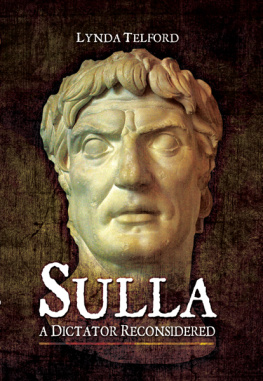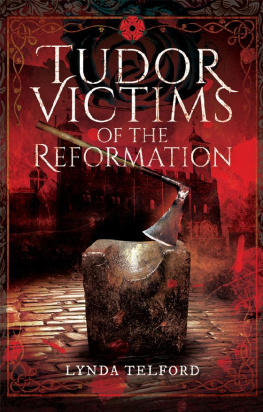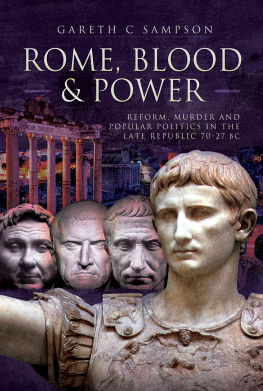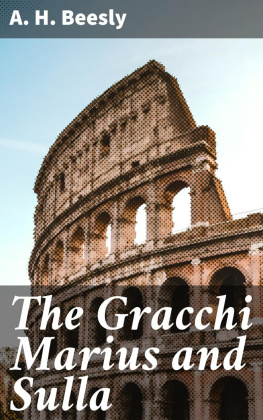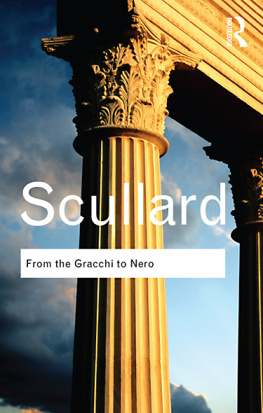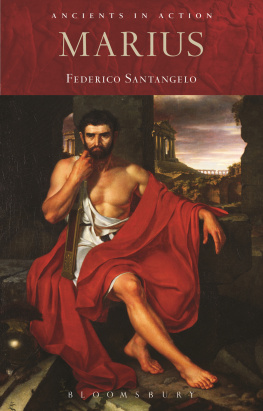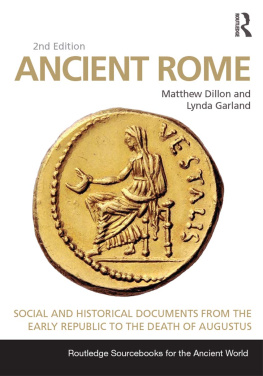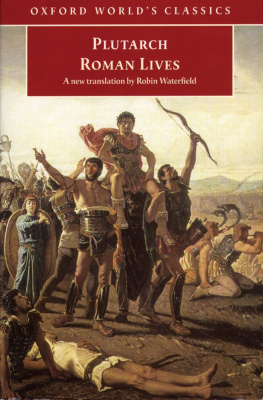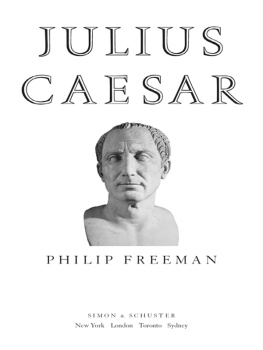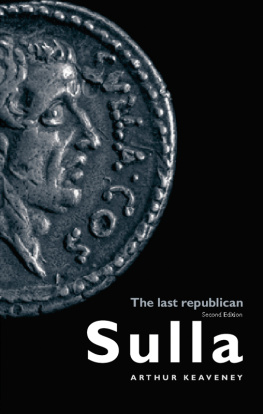First published in Great Britain in 2014 by
Pen & Sword Military
an imprint of
Pen & Sword Books Ltd
47 Church Street
Barnsley
South Yorkshire
S70 2AS
Copyright Lynda Telford 2014
HARDBACK ISBN: 978 1 78303 048 4
PDF ISBN: 978 1 47383 626 6
EPUB ISBN: 978 1 47383 450 7
PRC ISBN: 978 1 47383 538 2
The right of Lynda Telford to be identified as the Author of this Work
has been asserted by her in accordance with the Copyright, Designs
and Patents Act 1988.
A CIP catalogue record for this book is available from the British
Library
All rights reserved. No part of this book may be reproduced or
transmitted in any form or by any means, electronic or mechanical
including photocopying, recording or by any information storage and
retrieval system, without permission from the Publisher in writing.
Typeset in Ehrhardt by
Mac Style, Bridlington, East Yorkshire
Printed and bound in the UK by CPI Group (UK) Ltd, Croydon,
CRO 4YY
Pen & Sword Books Ltd incorporates the imprints of Pen & Sword
Archaeology, Atlas, Aviation, Battleground, Discovery, Family History,
History, Maritime, Military, Naval, Politics, Railways, Select,
Social History, Transport, True Crime, and Claymore Press,
Frontline Books, Leo Cooper, Praetorian Press, Remember When,
Seaforth Publishing and Wharncliffe.
For a complete list of Pen & Sword titles please contact
PEN & SWORD BOOKS LIMITED
47 Church Street, Barnsley, South Yorkshire, S70 2AS, England
E-mail:
Website: www.pen-and-sword.co.uk
Contents
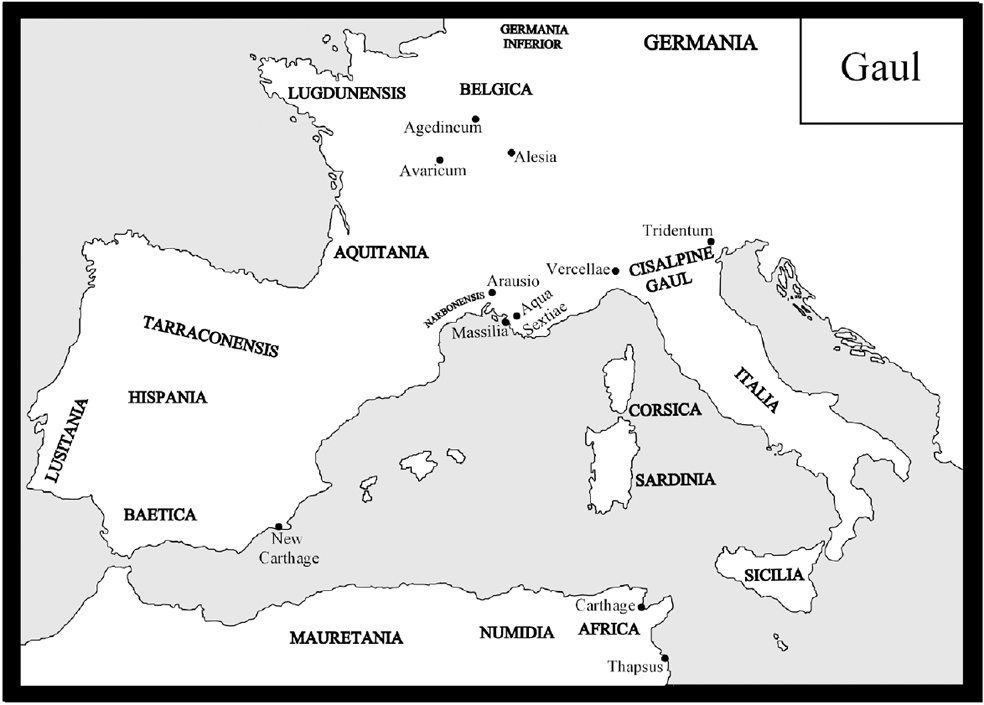
Map 1: Gaul.
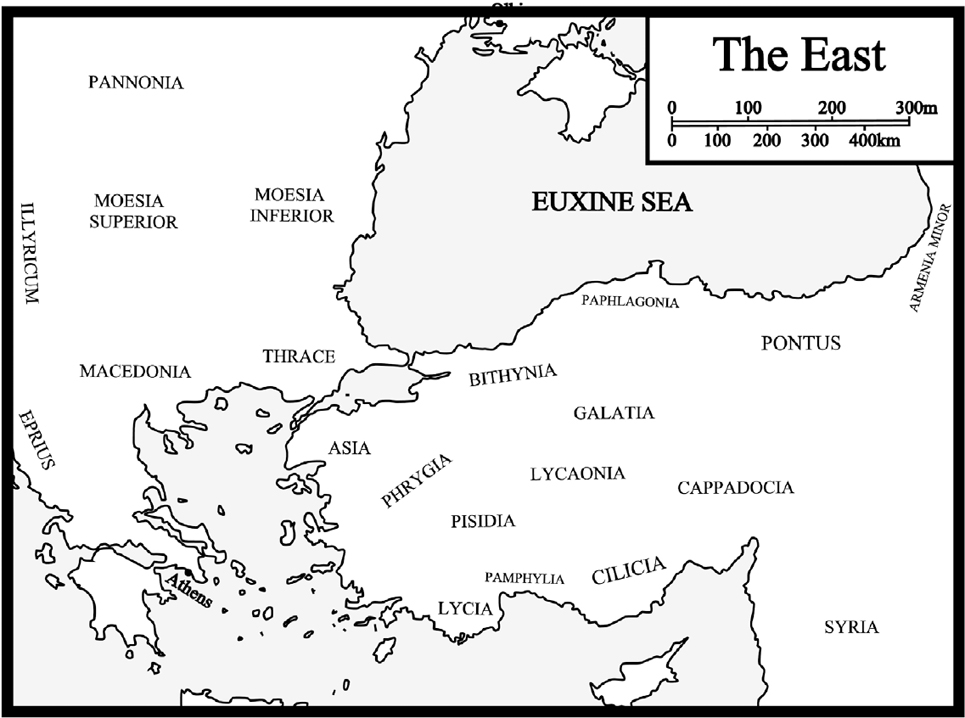
Map 2: The East.
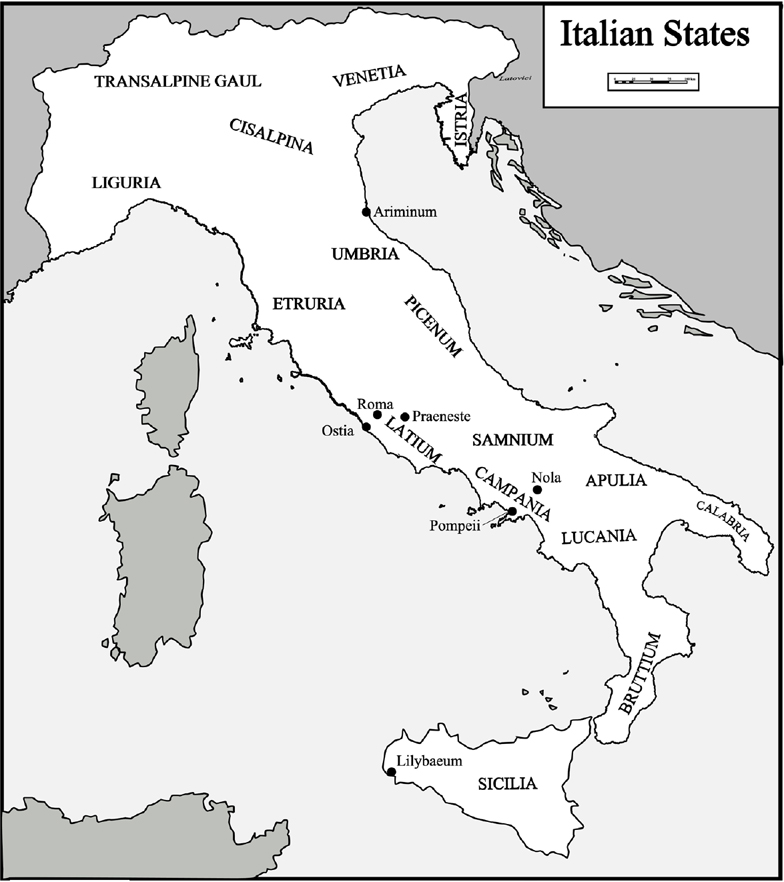
Map 3: Italian States.
Introduction
T he last 150 years of the Roman Republic undoubtedly produced some of the greatest men who have ever lived. Across the stage of the then known world walked, within a relatively short space of time, men whose names still ring aloud their glory and their achievements.
They ranged from the Brothers Gracchi, who struggled and had to die for the cause of land reform, or fairer distribution of the Italian lands, which had become the private sinecure of wealthy landowners. This control of the ager publica by several of the great families, using slave gangs to work the land, was to the detriment of the original small farmers who might otherwise have produced a modest prosperity for their own class. Even more, they would also have bred families of their own, and those children would in various ways advance the cause of Rome. Naturally, the great reforming brothers met with opposition from those who benefited most from the latifundia, and they were eventually destroyed, but their legacy of land reform lived on to be raised again in later years when land was required for veterans of the wars.
Next there was the great Gaius Marius. He not only reshaped the Roman army into something that a modern day soldier might still recognize, but started his brilliant rise by being successful against Jugurtha. He was also able to turn aside the hordes of the Germanic peoples, who were desperate to descend on southern Europe in the hope of better lands and a more equable climate. These people, many hundreds of thousands of them, represented a very real threat to Rome and the Roman way of life. When they were finally turned aside and the survivors eventually made their way towards the lands of the Belgae, seeking refuge, the stay-at-homes in Rome became aware that Gaius Marius, though a man of no birth, had saved them. He was capable not only of showing the old families that he was one of their greatest generals, but was beloved by those who swung the votes, and thereby became Consul for an unprecedented seven times.
Then followed my subject, Lucius Cornelius Sulla. He started life with the great advantage of Patrician birth, but also the huge disadvantage of lack of sufficient wealth to support that birth, and to help him make the expected ascent of the cursus honorum to which his Patrician blood entitled him.
There was also Pompey Gnaeus Pompeius Magnus. He saw himself as the greatest man in Rome and, despite his youth, very nearly proved it to be so.
Then Caesar himself, another Patrician, who managed to do the impossible, in making himself Dictator for Life, but who had to pay for his presumption by the loss of that life.
Also walking the Roman stage at that time were Crassus and Cato, Brutus and Cicero and the scandalous young Publius Clodius Pulcher and his equally scandalous sister Clodia, together with his delectable wife Fulvia. She was a descendant of the Gracchi and first married P. Clodius, then Curio, then finally Marcus Antonius, who was Gaius Julius Caesars second cousin and who expected to be his heir an expectation which, sadly for him, failed to materialize.
Exciting though these people are, who all have a tale to tell us, it is a very great mistake to look upon them, or indeed any historical character, with twenty-first century eyes, or to judge them by twenty-first century standards. They lived in a very different time when people had to make their decisions according to more brutal rules, which demanded more brutal reactions in return. They were often forced into situations we would probably be unable to cope with, therefore trying to understand their motives with minds blinded by modern considerations is a futile exercise.
This account does not pretend to be a military or political history of the period, nor do I believe that it needs to be. There are many such accounts already written by people who are experts in those fields. What the work does hope to do is to show this one man, Lucius Cornelius Sulla, as a real and living person. Not just as a figurehead of the Roman state, a name in a history book, a general, a politician, a dictator, or a murderer, though at various times in his life he became all of those things.
I believe he was a very able and competent man. This was at a time when Rome was rich in such men, but many, indeed most, of them failed to put Romes needs before their own. Yet Sulla, whose actions sometimes had to become extreme, was fundamentally a decent man, whose first love was always for Rome. I believe that he has had a very bad press and is not at all appreciated as he should be, nor does his life attract the sympathy and understanding given to other men of his time. Men of status and power were often compelled to deal with situations similar to his and were just as ruthless when they needed to be.
They too, often performed or instigated acts which have stained their names, and very few of them could claim to be free of this taint. Indeed, in the context of the time, it would hardly be possible for any man to live as a soldier and politician without at some time being obliged to stain his hands with the blood of those who fought against him or opposed him politically. This was the world in which they lived. However, other men have done this and been more easily forgiven for it.
Caesar was not exempt from extreme acts during his years as a general, yet he is still revered. He was not only responsible for horrific slaughters in Gaul, but some histories actually fail to mention Thapsus, on 6 April 46 BC. On that occasion, fighting the supporters of Pompeys sons, his men massacred 10,000 of the defeated side, while they were trying to surrender! After the massacre was over, he then executed Lucius Afranius, who had been Consul, along with Sullas son Faustus. These were, of course, not savages or barbarians, but fellow Romans. I fail to see how anything done by Sulla compares with that action, which is actually glossed over in many books dealing with the period.
Next page
